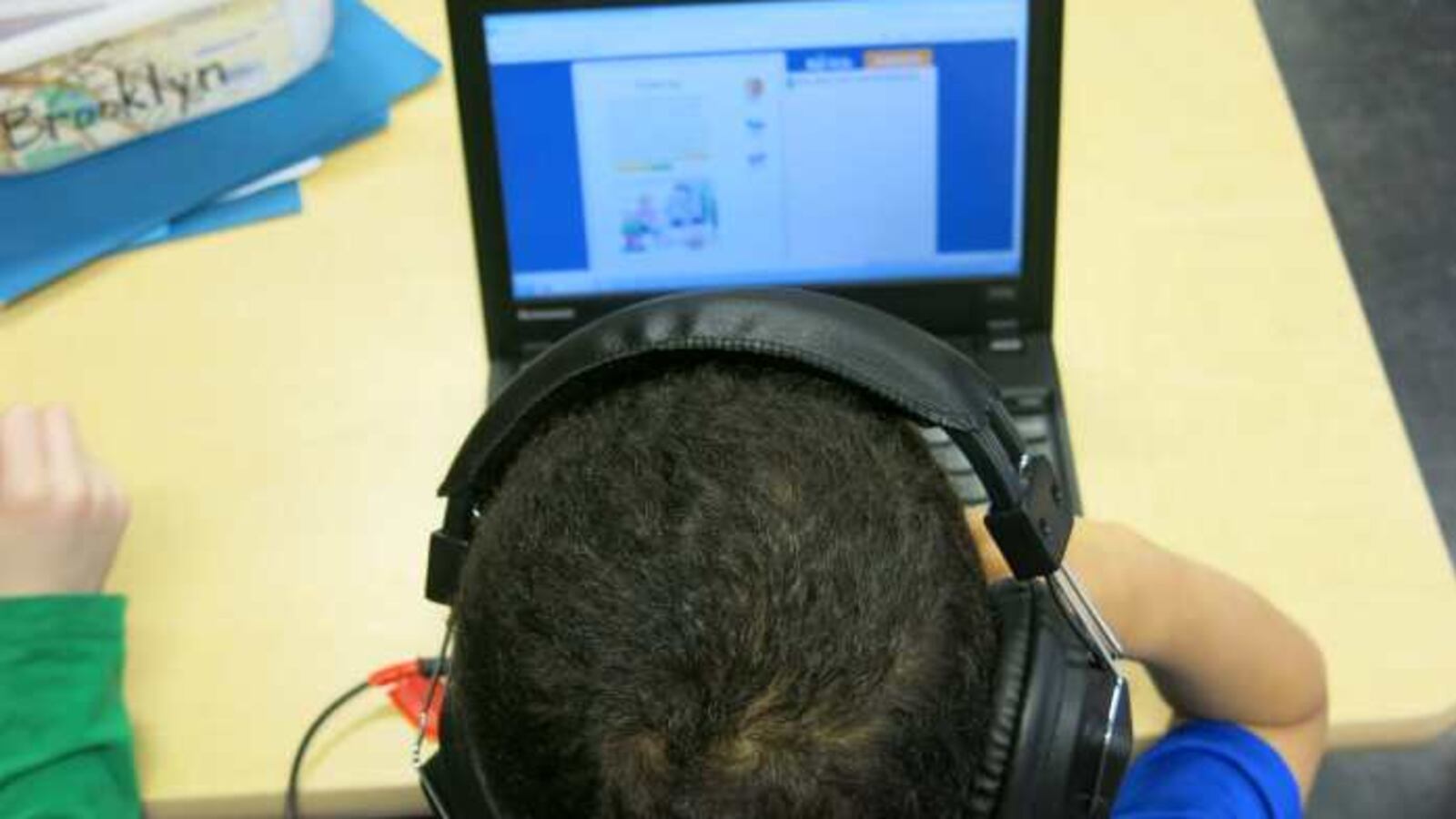Computers fascinate 4-year-olds in teacher Kaveshia McKinnley’s pre-K classroom in Memphis, but only two are available for use by her 20 Head Start students — almost all of whom have little or no access to digital devices at home.
That ratio would change, however, if Shelby County’s Board of Education votes Tuesday night to approve the proposed purchase of 500 iPads as a first-of-its-kind investment in technology for use by the district’s youngest students.
“It would almost be like having another teacher in the classroom, who can keep some of our children engaged and learning while we’re working with other small groups of children,” said McKinnley, whose class would receive six to eight of the Apple tablets to complement existing computers in her room at Frayser Head Start Center.
The tools could be a game-changer for the district’s nine Head Start centers, serving children who meet federal poverty guidelines.
“More than 75 percent of U.S. children under age 8 have access to iPads, smartphones and tablet devices, but those generally aren’t the children we serve,” said Deanna McClendon, director of early childhood programs for Shelby County Schools.
“This is another way we can close the Digital Divide and make sure that children who don’t have access at home have an opportunity to stay current in the digital world.”
It’s also a tool for developing fine motor skills so that — in addition to drawing, building with linking blocks, and cutting a straight line with safety scissors — children learn how to touch, drag, zoom and scroll on a multi-touch screen.
“The iPads are better for little hands than working on a computer with a mouse because children are actually able to manipulate the content with their hands,” McClendon said. “It’s a natural progression to one day using a mouse and a keyboard.”
The board is being asked to approve the use of $337,000 in Head Start funds to buy the iPads and related technology to create hands-on, customizable pre-K learning experiences for Head Start students. Each of the district’s Head Start centers would receive 40 to 60 iPads, targeted for classroom use by January.
“It’s a significant investment because a lot of our Head Start centers only have one or two computers, and those may not have been updated in three to five years,” McClendon said. “So for us to put these carts in our centers where we are serving about 200 children each, it’s going to put iPads in a lot of little hands.”
Board member Kevin Woods, who oversees a local workforce development network, said Monday that new Head Start technology will open up new opportunities for Memphis children needing a helping hand.
“I see individuals come to our facilities everyday to get online, and it’s clear that many of our families don’t have access to technology at home,” he said. “It’s crucial that we expose our children and young people in order to close the Digital Divide.”
Even before they reach the workforce, students need expanded digital skills to be successful in school in the TNReady era. Beginning this school year, Tennessee public school students in grades 3-11 are expected not only to better understand content on the state’s new standardized test, but to have the keyboarding skills to take the assessment online.
“Even for our pre-K students, TNReady is coming,” McClendon said. “One way to prepare them is to make sure we’re getting technology in the hands of 4-year-olds now. Our children won’t be looking at screens for four hours at a time, but we do want them to use these tools for brief periods of time that are developmentally appropriate.”
McKinnley is excited about the iPads because they’re particularly effective for teaching literacy skills — a big push in a district where 70 percent of third-graders are reading below grade level.
“They’re great for teaching vocabulary, phonetics and word knowledge,” she said.

